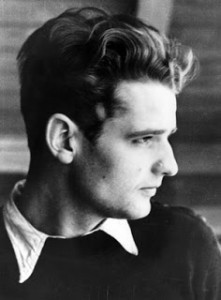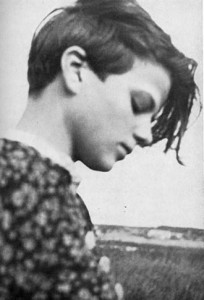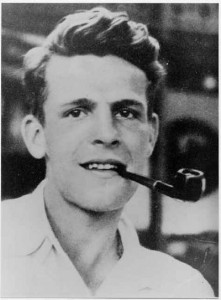Amazon: Elective Affinities
—-
Charlotte and Eduard were in love when they were very young, but parental pressures separated them. Twenty years later, they are finally able to be together, and now they live contentedly on Eduard’s large estate, somewhere near Weimar.
Eduard is in correspondence with his long-time friend, the Captain, who is frustrated by his current inability to find suitable employment, and suggests to Charlotte that he should come and live with them on the estate, where his surveying and construction-management skills would be very useful. Charlotte, though, has the sense that bringing a third party into the mix will somehow compromise the happiness for which they have waited so long. She makes her case nicely but determinedly, drawing from Eduard the reaction that a woman like Charlotte is “quite invincible” in debate:
First you are reasonable, so that it is not possible to contradict you; then charming, so that giving in to you is a pleasure; then full of feeling, so that a man wishes to avoid causing you any pain; then full of foreboding, which alarms him.
Despite Charlotte’s persuasiveness, though, Eduard remains concerned about the Captain’s situation, and does not drop the matter. Finally, Charlotte agrees that the Captain can join them, but with a proviso: she would also like her adopted daughter, Ottilie–who is having some difficulties at bording school–to move in with them.
The rather strange title of this book is taken from late-18th-century science, where it refers to the separation and combination of chemical substances…the Captain knows a bit about chemistry and shares his knowledge with Charlotte and Eduard after joining them at their estate.
The story is primarily concerned with Charlotte, Eduard, Ottilie, and the Captain—the four “substances” in the chemical analogy, whose varying affinities for one another create the drama of the book. There are also a few other important characters. One is a strange man named Mittler, whose self-appointed calling it is to travel about, seeking out conflicts among people and attempting to help resolve them. Another is Charlotte’s daughter Luciane, a budding socialite whose extremely hyper personality I found rather exhausting even at a distance of 200 years.
My description above may influence the reader to think that Elective Affinities is merely a rather trivial romance novel. And the stye of the book, the Arcadian setting, the unfailing courtesy with which the characters address one another…all these may at first seem to confirm such an opinion. But what Goethe is really dealing with here are the polarities of social structure versus passion and of free will versus fate.
Charlotte, who like her kindred spirit the Captain is a very organized and controlled person, at first sees an absolute distinction between the blind, automatic affinities of chemical substances and the freely-chosen affinities of human beings. But a year and a half later, her views about her degree of control over her own fate–and even her own feelings–have, as a result of experience, changed considerably.
Really sort of a mix between novel and essay, Elective Affinities is a short book, easy to read, and emotionally involving if not emotionally overwhelming. I read the Oxford edition, with the translation by David Constantine…one reviewer at Amazon strongly recommended this in preference to the Penguin version.
Here’s an interesting review of Elective Affinities from 1885. It’s chock-full of spoilers, so if you plan to read the book, you may want to hold off on the link until you finish it.
There is also a 1996 movie based on the book–made by Italian filmmakers and with the action transposed from Germany to Italy. I’ll comment on it in a later post.


